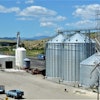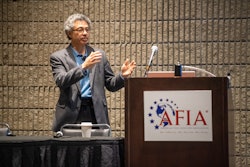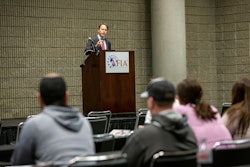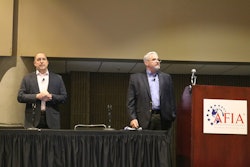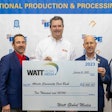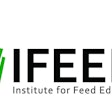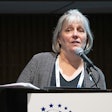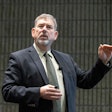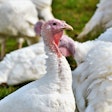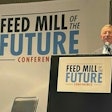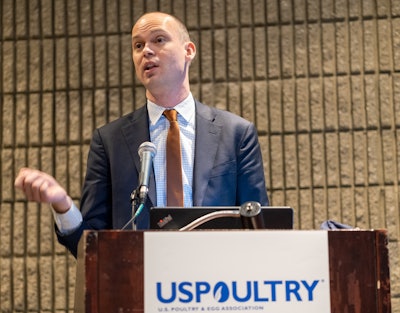
“Increasing agriculture productivity while reducing negative impacts is one of the greatest challenges of this century,” remarked Rod Snyder, agriculture advisor for the U.S. Environmental Protection Agency (EPA), during the Animal Agriculture Sustainability Summit held at the2022 International Production & Processing Expo (IPPE).
The Animal Agriculture Sustainability Summit is sponsored by the U.S. Poultry & Egg Association (USPOULTRY), along with the American Feed Industry Association (AFIA) and the North American Meat Institute (NAMI).
Snyder said that his position is to bring an open line of communication between the EPA and the agricultural community.
He discussed the Biden administration’s ambition of reducing greenhouse gases 50% by 2050; EPA’s methane action plan that encourages farmers to reduce gas emissions by using bio-digestors, solid separators, lagoon covers and other practices; and the Department of Energy’s support of innovative technology for methane measurement.
Eric Mittenthal, chief strategy officer for the North American Meat Institute (NAMI), described the work that NAMI has put into the Protein PACT (e.g., People, Animals and Climate of Tomorrow).
"The vision of Protein PACT for 2030 is to earn trust through a commitment of continuous improvement that demonstrates shared values, so that consumers concerned about animal protein production and consumption believe the entire animal protein value chain is aligned with their values and is an important part of a socially responsible and healthy diet," he said.
Mittenthal also discussed NAMI’s modification in culture that includes embracing change, being member-led and consumer-focused, being data-driven and communicating for what they advocate.
“Our goal within the feed space is to be able to leverage each other’s expertise, efforts and resources to really be able to make an impact when it comes to sustainability,” said Constance Cullman, president and CEO of the American Feed Industry Association (AFIA) and president of the Institute for Feed Education & Research (iFEEDER).
Cullman discussed AFIA’s work with iFEEDER ondeveloping a sustainability roadmap, in addition to the work AFIA is doing with the Global Feed LCA Institute (GFLI) on creating a publicly available Animal Nutrition Life Cycle Analysis (LCA) database.
Ryan Bennett, executive director of the U.S. Roundtable for Sustainable Poultry & Eggs (US-RSPE) and International Poultry Welfare Alliance (IPWA), provided an update on the poultry and egg multi-stakeholder value chain’s welfare and sustainability program development efforts.
The update included the progress on the US-RSPE Sustainability Framework, which is a comprehensive reporting structure that measures and voluntarily verifies sustainability in areas that are important to the poultry and egg supply chain.
This allows organizations to provide transparency to stakeholders while driving continuous improvement.

